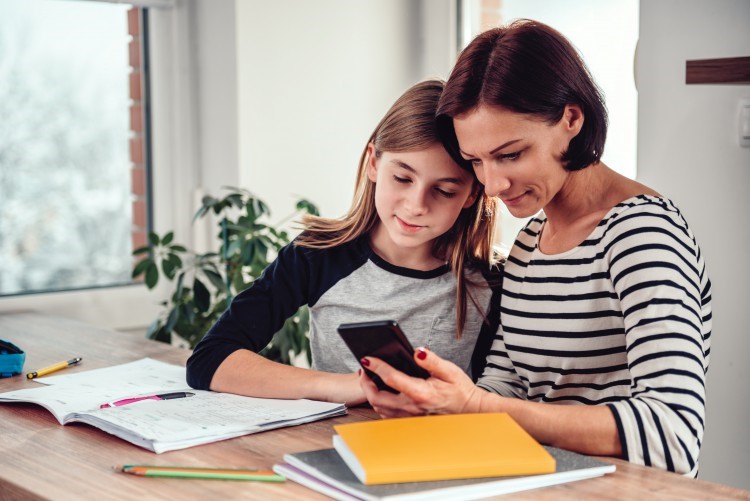The Impact Of Social Media On Mental Health

The Impact Of Social Media On Mental Health: The internet and social media provide several advantages. Sharing and connecting, learning new things, and making new friends are all made possible by this medium. For college-aged folks who have grown up with digital media, however, there are potential drawbacks. EnoughInfo.com

Read Also: How To Be Healthy And Active
FAQs & Answers
How can I use social media in a way that promotes positive mental health?
You can use social media in a way that promotes positive mental health by setting boundaries around social media use, curating your social media feed to include positive and inspiring content, practicing self-care and stress relief, and connecting with others. You can also seek professional support if you are experiencing significant mental health symptoms related to social media use. How To Maintain Interpersonal Relationships(Tips)
Can social media use cause mental health disorders?
While social media use itself may not cause mental health disorders, it can contribute to the development or exacerbation of symptoms. Individuals with pre-existing mental health conditions may be particularly vulnerable to the negative effects of social media use.
How can I tell if social media is negatively impacting my mental health?
You may notice signs that social media is negatively impacting your mental health, such as feelings of anxiety, depression, or inadequacy after spending time on social media. You may also notice changes in sleep patterns, appetite, or other behaviors. If you are concerned about the impact of social media on your mental health, consider speaking with a mental health professional.
The Impact Of Social Media On Mental Health
Depression, anxiety, and isolation have all been connected to social media use. It has been shown in recent research cited by organizations like the Child Mind Institute and the National Center for Health Research that people who spend more time on social media are less joyful and less optimistic about their lives than those who engage in non-screen-related activities. How To End A Relationship The Right Way
Find out the ways in which social media may be harmful to your mental health and the ways in which you, or someone you know, can use it more positively.
Negative Effects On Mental Health
Social media has become an integral part of our lives, but it has also been linked to negative effects on mental health. Here are some of the ways in which social media can have negative effects on mental health:
Inadequacy regarding your life or appearance
Even if you realize that photographs you’re viewing on social media are edited, they may still make you feel anxious about how you appear or what’s going on in your own life. Similarly, we’re all aware that other people tend to discuss just the highlights of their life, rarely the sad periods that everyone faces. Yet that doesn’t make the jealousy and discontent you feel while seeing your friend’s Photo-shopped images of their exotic beach vacation or hearing about their wonderful new promotion at work any easier to bear.
Addiction to social media and fear of missing out (FOMO)
Despite the fact that FOMO has been for far longer than social media, apps like Facebook and Instagram tend to make it worse because you think others are more fun or have a better life than you do. The perception that you’re missing out on particular things can lower your self-esteem, cause worry, and increase your usage of social media, much like an addiction. Even if it means driving recklessly, skipping sleep at night, or putting social media involvement ahead of real-world relationships, FOMO may make you pick up your phone every few minutes to check for updates or compulsively reply to each alert.
Read Also: How To Build A Healthy Relationship
Sleep disturbances
Social media use can interfere with sleep, which is important for mental health. Exposure to blue light emitted by electronic devices can interfere with the body’s natural sleep cycle, leading to insomnia and other sleep disturbances.
Comparison
Social media often presents a highlight reel of people’s lives, which can lead to feelings of inadequacy and inferiority in comparison. It can lead to a constant need to compare oneself to others, leading to self-doubt, anxiety, and depression. Signs You Are In A Karmic Relationship & How To Break Free
Unrealistic expectations
Social media often presents unrealistic and unattainable standards of beauty, success, and happiness, which can lead to feelings of inadequacy and low self-esteem.
Positive Effects On Mental Health
While social media can have negative effects on mental health, it can also have some positive effects. Here are some ways in which social media can positively impact mental health:
Connection
Social media can provide a way to connect with others, particularly for those who may have difficulty with face-to-face interactions. This can provide social support and reduce feelings of loneliness and isolation.
Community building
Social media can bring together people who share common interests and values, providing a sense of belonging and purpose. This can be particularly helpful for those who may not have access to such communities in their physical environment. How To Maintain An Interracial Relationship
Education and Awareness
Social media can provide a platform for sharing information about mental health, reducing stigma, and increasing awareness. It can also provide access to resources and support.
Read Also: Health Benefits Of Chia Seeds(All You Need To Know)
Inspiration and motivation
Social media can provide a source of inspiration and motivation for personal growth and development. Positive social media accounts can promote healthy habits and behaviors, and provide motivation to pursue personal goals and aspirations.
Creativity and self-expression
Social media can provide a platform for creative expression, which can be therapeutic and improve overall mental well-being.
Managing The Effects
Set boundaries
Set limits on the amount of time you spend on social media and the types of content you consume. Consider taking a break from social media altogether if you feel overwhelmed or stressed.
Curate your social media feed
Unfollow accounts that make you feel anxious or inferior, and follow accounts that promote positivity, inspiration, and education.
Practice self-care
Engage in activities that promote relaxation and stress relief, such as exercise, meditation, and spending time in nature.
Connect with others
Use social media as a tool to connect with friends and family and build a support network. Consider joining online communities related to your interests or hobbies.
Seek professional support
If you are experiencing significant mental health symptoms related to social media use, consider seeking support from a mental health professional who can help you develop coping strategies and manage your social media use.
Set healthy habits
Develop healthy habits around social media, such as checking it at specific times of the day or turning off notifications, to avoid constant distraction and over-stimulation.
Conclusion
Remember, it’s important to prioritize your mental health and well-being, and to be mindful of how social media use impacts your mental health. By implementing healthy habits and seeking support when needed, you can manage the effects of social media on your mental health.
Read Also: Top Healthy Foods To Eat Everyday(2023 Guide)




